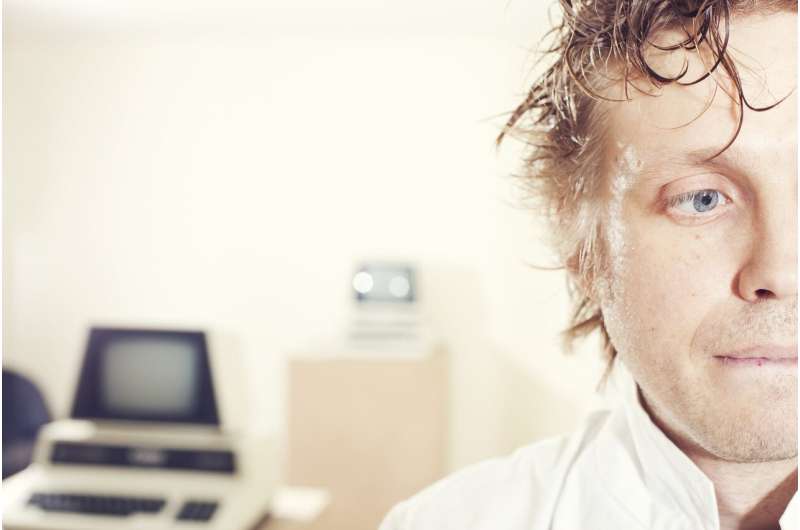Study is the first to assess dental faculty well-being during the pandemic

As the COVID-19 pandemic forced the world to withdraw for safety in 2020, faculty at dental schools did not report significant decreases in measures of their well-being, according to results from a study led by Carlos S. Smith, D.D.S., at Virginia Commonwealth University School of Dentistry.
Recently published in the American Dental Education Association's Journal of Dental Education, the study, conducted in September and October 2020, was based on the results of a survey of faculty at VCU School of Dentistry, University of Minnesota School of Dentistry, University of Texas School of Dentistry at Houston and Harvard School of Dental Medicine. The survey assessed several factors related to respondents' well-being, including personal and work-related burnout, resiliency and loneliness.
A total of 216 faculty members from the four schools completed the survey, which also included questions related to joy and stress as well as demographics. While scores were not significantly worse compared to results from a pre-pandemic study examining dental faculty burnout at U.S. dental schools in the Northeast, rates of burnout and loneliness remained higher for dental faculty than the general public. The survey compared numbers for dental faculty against the public from a study of the public completed in April 2020, where the prevalence of loneliness was reported at 23%.
"Understanding provider well-being is really an intersection of passions for me. As a clinician and ethicist as well as an equity and belonging practitioner, I feel it is vitally imperative that we understand why some providers excel despite setbacks and others find it difficult to thrive after challenging circumstances," said Smith, who is director of diversity, equity and inclusion and the ethics curriculum and an associate professor at VCU School of Dentistry. "Dental schools occupy a unique landscape as both educational institutions and clinical enterprises. With faculty serving as moral exemplars for students and residents, understanding their well-being is key to future workforce development."
This study builds off groundbreaking work Smith and a VCU team published in January 2020, which was the first measure of dental student resilience in the U.S.
On a scale of one to five, with five indicating extreme burnout and one indicating no burnout, average personal burnout was 2.7 and work-related burnout was 2.8 among respondents. Work-related burnout was higher among full-time faculty, female faculty and those living alone. Both measures decreased with increasing age.
Resilience was also measured on a scale of one to five with higher scores indicating increased resilience. The average resilience score was 3.6 and did not differ significantly among groups. Loneliness was measured by the sum of responses to three items with a combined scale of nine, with responses totaling six or more being considered lonely. Average reported loneliness was 4.8; however, individuals who lived alone had an average loneliness score of 7.05. Nearly one-third of responding dental faculty were considered lonely, according to the study's measurements.
"We wanted to look at loneliness, which is the gap between the social connectedness one wants and what one feels they actually have," Smith said. "With an ongoing pandemic and a significant degree of loneliness reported by faculty, dental schools should be questioning what role they can play in bridging this gap."
Respondents were also asked to report on aspects of their job that brought them the most joy as well as the most stress. Full-time faculty reported administrative responsibilities as the most stressful part of their job, whereas part-time faculty reported clinical care as most stressful. For all respondents, the most joy came from teaching.
"A clear positive of disruption is innovation," Smith said. "We know that dental faculty wear multiple hats, so we wanted to inquire if there were specific responsibilities that provide greater fulfillment or present opportunities to overcome challenges."
In light of the ongoing pandemic and higher-than-average rates of burnout and loneliness among dental faculty compared to the public, Smith and his colleagues recommend that dental schools continue to provide education, training and incentives designed to reduce burnout and increase resilience among faculty. Additionally, the researchers recommend future studies look more closely at the factors associated with varying levels of well-being among different demographic groups. The authors suggest faculty recruitment and retention efforts may benefit from intentional institutional commitments to improved faculty well-being.
"The cultivation of resilience is often regarded as a personal task," Smith said. "However, more and more, we are learning and understanding that resilience is as much an organizational value as it is personal. Strategic planning, professional development, institutional culture and climate, as well as DEI initiatives, are all interconnected with organizational and personal resilience."
More information: Carlos S. Smith et al, Dental faculty well‐being amid COVID‐19 in fall 2020: A multi‐site measure of burnout, loneliness, and resilience, Journal of Dental Education (2021). DOI: 10.1002/jdd.12822





















